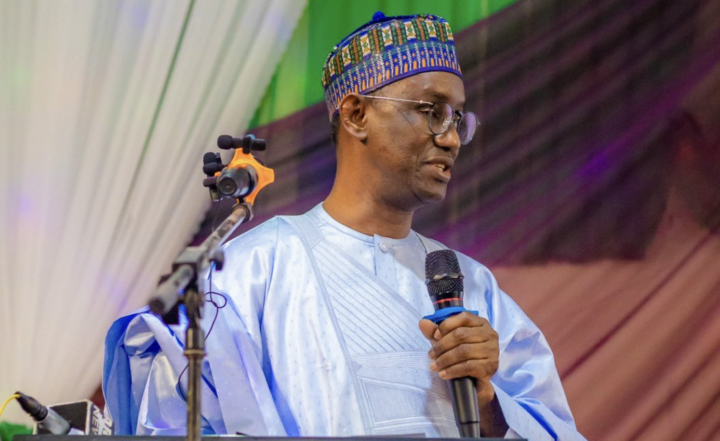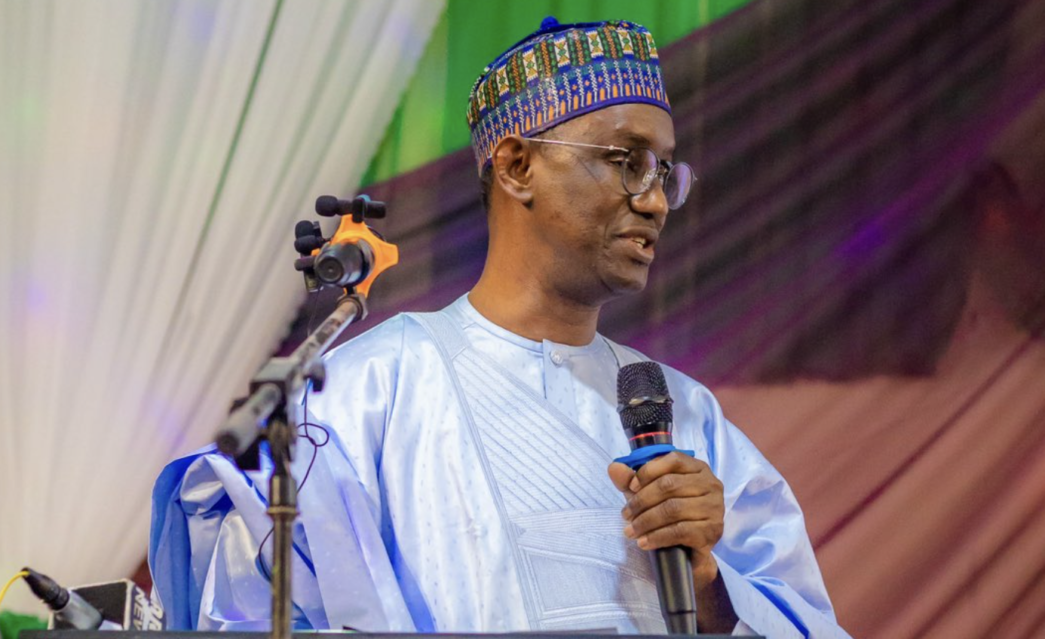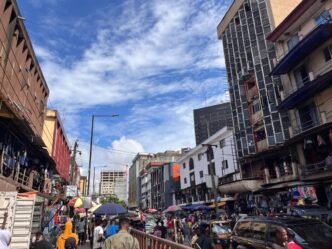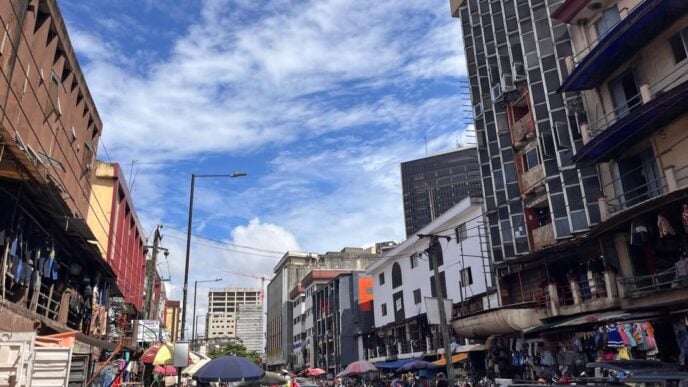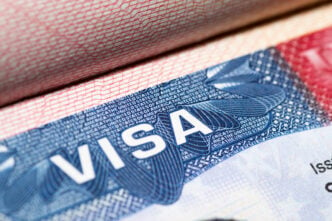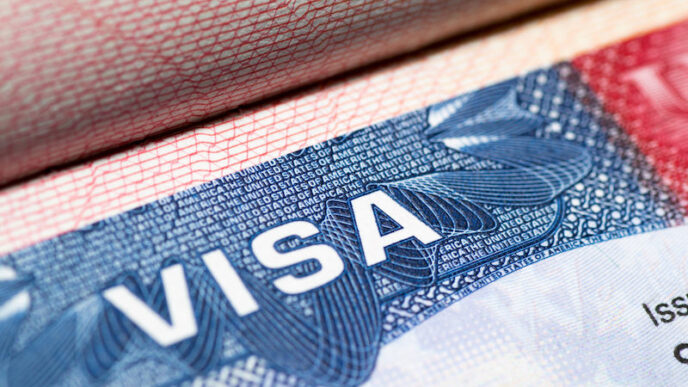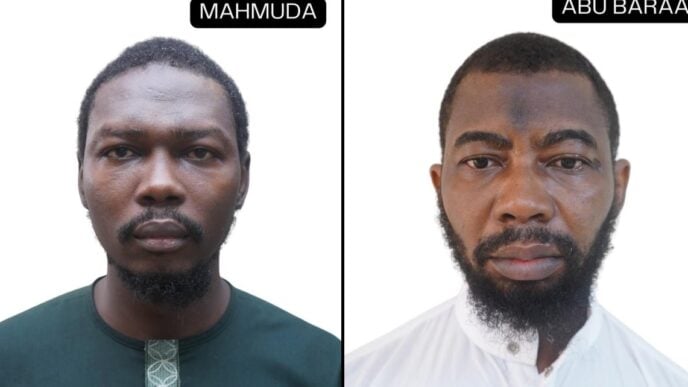Nuhu Ribadu, national security adviser
BY SENATOR IROEGBU
Nigeria’s security landscape has begun to shift. Terrorists are surrendering, warlords are falling, oil production is recovering, and communities once silenced by fear are slowly reclaiming public space.
The latest and perhaps most consequential breakthrough is the capture of two of the most notorious terrorist kingpins in northern Nigeria. The resilience and determination of the Nigerian people in the face of such challenges are genuinely inspiring.
After months of painstaking intelligence work, Nigerian security forces apprehended Mahmud Muhammad Usman, the self-styled “Emir of Ansaru”, and his deputy Mahmud al-Nigeri (Malam Mahmuda)—the mastermind of the Mahmuda terrorist group that had long tormented Borgu, a geo-cultural region stretching across Niger, Kebbi, and northern Kwara, and spilling into the Benin Republic.
Advertisement
Their arrest has effectively dismantled the command structure of the al-Qaeda-linked Ansaru group, notorious for kidnappings, assassinations, and extremist propaganda.
For years, Ansaru posed a unique threat—blending local grievances with global jihadist networks, staging ambushes on highways, and attacking security convoys with deadly precision.
National Security Adviser Nuhu Ribadu deserves enormous credit for steering this operation with quiet resolve. Working in concert with the armed forces and intelligence agencies, Ribadu helped deliver what is already being described as one of Nigeria’s most consequential counter-terrorism successes.
Advertisement
In a climate where victories against terror too often feel fleeting, the neutralisation of Ansaru’s leadership stands as a rare and decisive breakthrough. Public affairs analyst Farooq Kperogi aptly described it as “a visible, heartening crack in the wall of impunity that these blood-sucking monsters of depravity had built for themselves.”
Of course, terror will not vanish overnight. Ansaru’s lieutenants remain scattered, and other criminal syndicates continue to plague highways, villages, and farmlands. But the symbolism of this victory is profound: Nigeria has shown that with patience, intelligence, and coordination, even the most entrenched terror networks can be cut down.
This progress builds on broader gains since mid-2023. According to official data, between May 2023 and early 2025, security forces neutralised more than 13,500 terrorists and armed criminals, while over 124,000 insurgents and their families surrendered.
More than 11,000 hostages were freed, and 3,843 illegal refineries were dismantled, choking off vital lifelines of both terror and economic sabotage.
Advertisement
In the north-west, the phenomenon of mass abductions has declined sharply, aided by the elimination of notorious bandit warlords like Ali Kachalla, Halilu Sububu, and Boderi. The north-east theatre, once dominated by Boko Haram and ISWAP, has seen insurgent capacity steadily degraded, with fighters surrendering in their thousands—a scenario unimaginable just a few years ago.
In the Niger Delta, oil production has rebounded to 1.8 million barrels per day, the highest in years, after a concerted clampdown on oil theft and pipeline vandalism. Meanwhile, in the south-east, the once-feared “sit-at-home” orders imposed by armed separatists are losing their grip, with commercial and social life gradually returning.
Nigeria has also moved to secure its virtual borders. Cybercrime crackdowns and the rollout of the Critical National Information Infrastructure Protection Plan reflect a recognition that the wars of today are waged as much in cyberspace as in forests and villages.
And yet, challenges remain. Kidnappings, though reduced in some areas, still plague highways. Displaced farmers remain reluctant to return to their fields, worsening food insecurity.
Advertisement
Cross-border arms trafficking, climate change pressures, and adaptive criminal networks all complicate the security equation. The arrest of Ansaru’s kingpins is a breakthrough—but unless sustained, it risks becoming another high point in a cycle of boom and relapse.
The road ahead requires more than battlefield victories. Nigeria needs a whole-of-society strategy that pairs military gains with governance reforms, political dialogue, and economic inclusion.
Advertisement
Intelligence-driven policing, regional cooperation to secure porous borders, and genuine community engagement are essential. Equally important is building public trust through transparency, accountability, and consistent leadership—without which victories risk evaporating into disillusionment. The need for these sustained, holistic strategies is urgent and cannot be overstated.
The dismantling of Ansaru’s leadership shows what is possible when political will aligns with operational discipline. It is a moment worth celebrating, not because the war is over, but because it proves progress is achievable. Nigeria has long been accustomed to headlines dominated by violence and loss; this capture offers a different kind of story—a reminder that the tide, however slowly, can turn.
Advertisement
The actual test is whether this victory will be treated as an isolated success or as a launchpad for more profound, systemic change.
If Nigeria sustains this momentum—combining security with justice, economic opportunity, and social cohesion—the shadow of insecurity need not define the nation’s future. The potential for more profound, systemic change is within reach, offering a glimmer of hope in an otherwise challenging situation.
Advertisement
For now, the fall of Ansaru’s terror lords is a decisive crack in the edifice of impunity. It must not be the last.
Again, it is worth noting that the federal government has revitalised programmes such as the National Park service’s forest guard initiative to reclaim forests used as criminal hideouts, which is promising.
However, these measures will yield little if they are not anchored on transparency, consistency, and shared responsibility across federal, state, and local levels.
Security, as the old saying goes, is everybody’s business. Communities must actively participate in their protection, and civic leaders must work to bridge the gap between citizens and the security apparatus.
Nigeria’s security journey is far from over, and the path is still treacherous. Yet the evidence of the past eighteen months suggests that progress is possible when political will, strategic clarity, and operational discipline align. For a country long accustomed to headlines dominated by pervasive insecurity, these gains, however fragile, are a reminder that the tide can be turned.
But it will require vigilance to guard against complacency, foresight to address root causes, and courage to confront those who profit from instability. Only then can Nigeria hope, not just to contain insecurity, but to end the cycle and build the foundation for lasting peace.
Iroegbu, a journalist and security and public affairs analyst, writes from Abuja.
Views expressed by contributors are strictly personal and not of TheCable.
